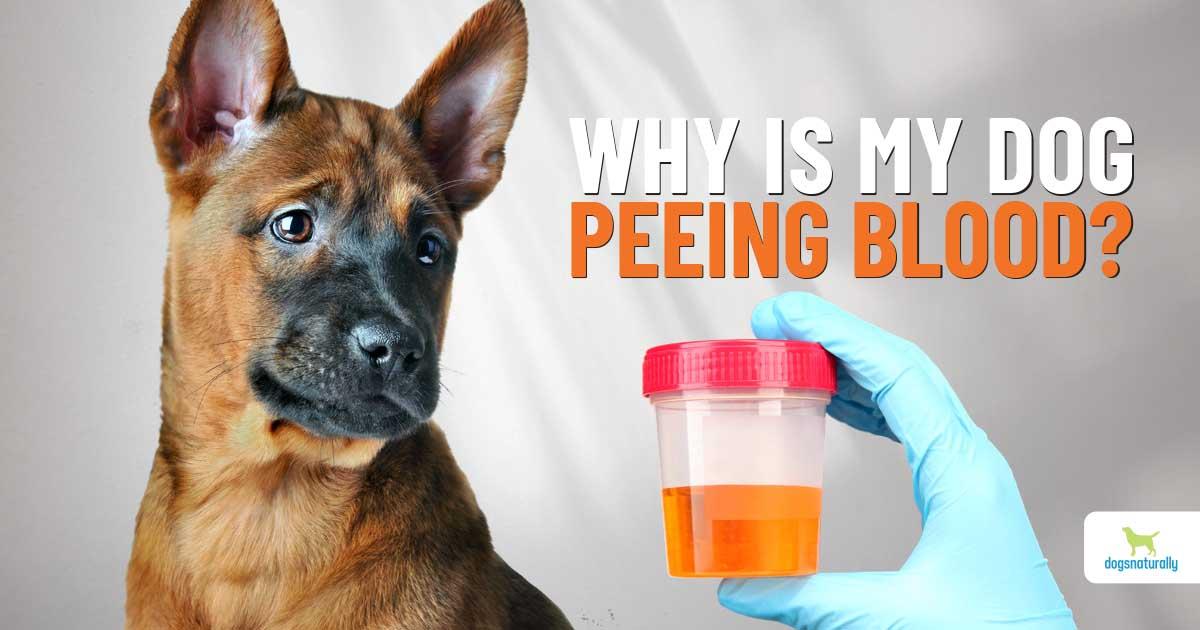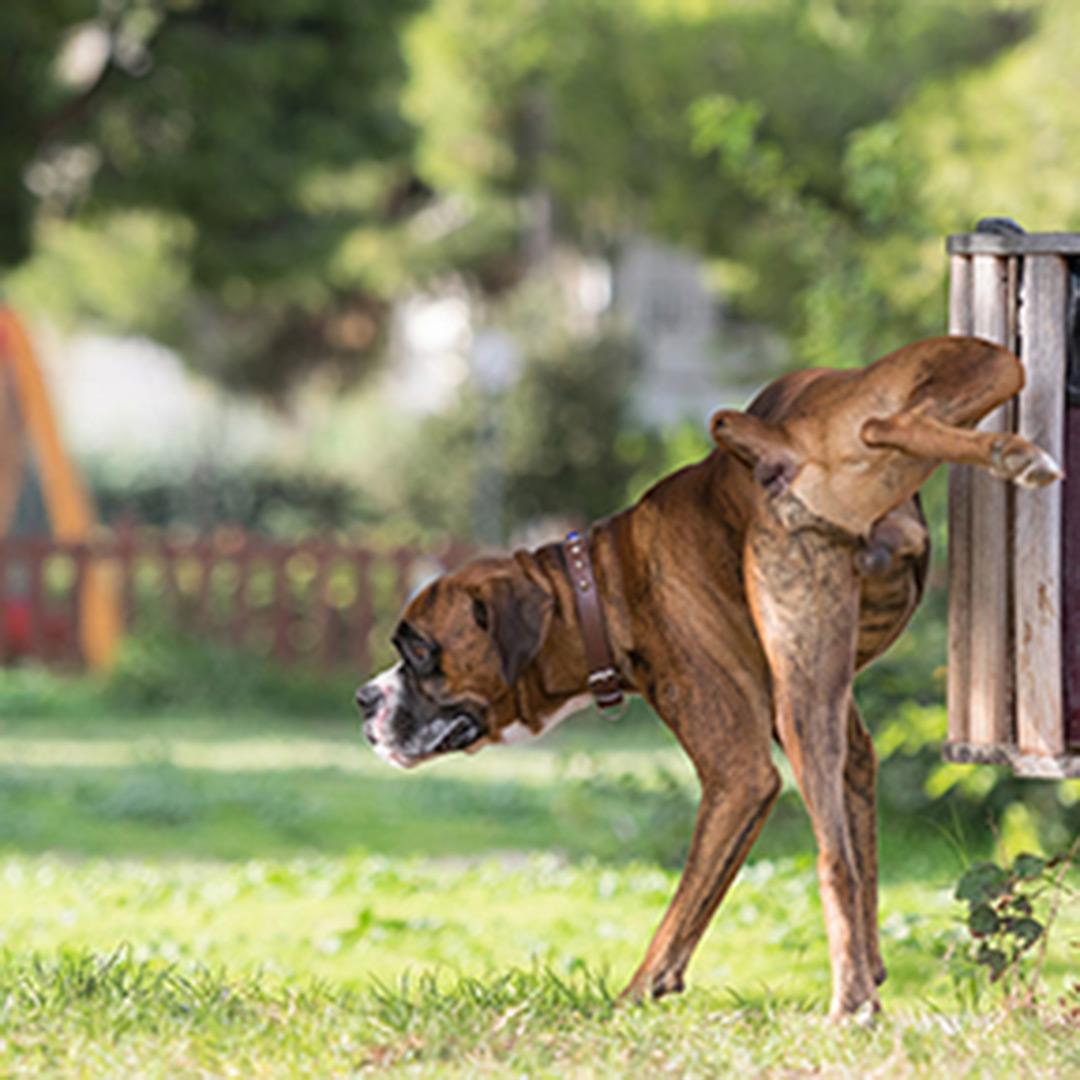When our furry companions exhibit unusual behaviors, it can be a source of concern for any pet owner. Imagine noticing your dog peeing blood but otherwise acting completely normal—eating, playing, and maintaining their usual energy levels. While it may initially seem perplexing and alarming, understanding the potential causes behind this troubling symptom is crucial for ensuring your dog’s health and well-being.
In this article, we’ll explore the possible reasons for blood in your dog’s urine, what actions you should take, and how to best support your beloved pet during this unsettling time. Whether you’re a seasoned dog owner or a first-time caregiver, arming yourself with knowledge is the first step toward addressing any health issues your canine friend may face. Let’s dive into the details to better understand this condition and what it means for your dog.
Table of Contents
- Understanding the Signs of Blood in Dog Urine and What They Mean
- Common Causes of Blood in Urine While Your Dog Appears Healthy
- Immediate Steps to Take When You Notice Blood in Your Dogs Urine
- When to Seek Veterinary Care and What to Expect During the Visit
- Q&A
- Future Outlook
Understanding the Signs of Blood in Dog Urine and What They Mean
Noticing blood in your dog’s urine can be alarming, especially when they seem to be acting normal otherwise. This occurrence, known as hematuria, can arise from a variety of factors that may not always indicate a severe issue. Some common causes include:
- Urinary Tract Infections (UTIs): Infections can irritate the bladder and cause bleeding.
- Bladder Stones: These can scratch the lining of the bladder, leading to blood in urine.
- Trauma: Any injury to the urinary tract may result in bleeding.
- Inflammatory Conditions: Issues like cystitis can cause inflammation and bleeding.
- Systemic Diseases: Conditions affecting blood clotting or the liver can manifest as hematuria.
If you observe this symptom, a veterinary visit is essential to determine the underlying cause. During the examination, your vet may conduct tests such as:
| Test | Description |
|---|---|
| Urinalysis | Analyzes urine for signs of infection, blood, or crystals. |
| X-rays or Ultrasound | Identifies any stones or abnormalities in the bladder or kidneys. |
| Blood Tests | Checks for evidence of systemic disease or infection. |
Prompt attention to these signs can help ensure your furry friend receives the necessary treatment, enhancing their well-being and overall health.
Common Causes of Blood in Urine While Your Dog Appears Healthy
When your dog is peeing blood yet seems to be acting normally, it can be perplexing and distressing. Several underlying issues may contribute to this condition, and it’s essential to consider a range of possible causes. Urinary tract infections (UTIs) are a common culprit, with symptoms that often go unnoticed until blood is present in the urine. Bladder stones and tumors can also lead to hematuria, which is the medical term for blood in urine, and dogs may not exhibit other symptoms until the condition worsens. Additionally, conditions like prostate disease or even a recent trauma to the urinary tract can result in bleeding without immediate signs of illness.
It’s crucial to pay attention to any additional signs or changes in behavior, even if they seem subtle. If your dog is acting normally but has blood in its urine, consider these factors: age, diet, and recent activities. Here’s a quick table to summarize some potential causes:
| Cause | Symptoms |
|---|---|
| Urinary Tract Infection | Frequent urination, straining, foul odor |
| Bladder Stones | Difficulty urinating, pain, blood in urine |
| Prostate Disease | Excessive licking, difficulty urinating |
| Trauma | Visible bruising, changes in behavior |
Immediate Steps to Take When You Notice Blood in Your Dogs Urine
Noticing blood in your dog’s urine can be alarming, but remaining calm and taking prompt action is key. First, it’s essential to ensure your dog is stable and not showing signs of distress. Monitor your dog’s behavior closely and check for any signs of pain, lethargy, or changes in appetite. If your furry friend appears normal and is behaving as usual, here are some immediate steps you should take:
- Document the Observation: Take note of when you first saw the blood, any changes in frequency of urination, and any other unusual behaviors.
- Check for Other Symptoms: Look for signs such as vomiting, diarrhea, or fever which could indicate a more serious issue.
- Avoid Self-Medicating: Do not give your dog any medications without consulting a veterinarian first, as this could exacerbate the issue.
- Keep Your Dog Hydrated: Make sure your dog has access to plenty of fresh water to help flush their system.
- Schedule a Vet Visit: Even if your dog seems fine, it’s critical to make an appointment with your veterinarian as soon as possible to determine the underlying cause.
While monitoring your dog, try to gather as much information as you can for your vet. This might include a behavioral history or a record of any recent dietary changes. If possible, prepare a simple table to outline your observations:
| Observation | Details |
|---|---|
| First Notice of Blood | [Date/Time] |
| Frequency of Urination | [Normal/Increased/Decreased] |
| Other Symptoms | [List Symptoms] |
| Recent Dietary Changes | [Yes/No & Details] |
Being prepared with notes and observations can facilitate a more effective dialogue with your vet, helping them to diagnose the issue faster. Prioritizing your dog’s health is crucial, so taking these immediate steps can lead to better outcomes.
When to Seek Veterinary Care and What to Expect During the Visit
If you notice your dog peeing blood but otherwise behaving normally, it’s essential to consult a veterinarian promptly. Blood in urine can indicate various health issues, some of which may require immediate attention. Look for any additional symptoms like changes in appetite, lethargy, or urinary straining, as these could provide critical clues about your pet’s condition. You should seek veterinary care if you observe:
- Persistent Blood in Urine: Even if your dog seems fine, ongoing blood may signal a serious problem.
- Increased Frequency of Urination: If your dog is urinating more often than usual, this could be a sign of infection or bladder issues.
- Signs of Pain or Discomfort: Watch for signs like whining or difficulty sitting comfortably.
During your visit, the veterinarian will likely perform a thorough physical examination and may recommend diagnostic tests like urine analysis or blood tests. Expect to answer questions about your dog’s recent behavior, diet, and any accidents or unusual activities. This information can help the vet identify potential causes and determine an appropriate treatment plan. Here’s a quick overview of what you might encounter during your visit:
| Procedure | Purpose |
|---|---|
| Physical Exam | To assess your dog’s overall health and check for signs of distress. |
| Urine Analysis | To identify infections, crystals, or blood in the urine. |
| Blood Tests | To evaluate organ function and detect underlying conditions. |
Q&A
Q&A:
Q1: What does it mean if my dog is peeing blood but seems to be acting normal?
A1: If your dog is peeing blood but otherwise appears healthy and normal, it could indicate various underlying issues. Some potential causes include urinary tract infections (UTIs), bladder stones, or even more serious conditions like tumors. However, dogs can sometimes mask discomfort well, so even if they seem fine, it’s important to take the symptom seriously.
Q2: What are some common causes of blood in a dog’s urine?
A2: Common causes of blood in a dog’s urine (hematuria) include:
- Urinary Tract Infections (UTIs): Infections can irritate the bladder lining and lead to bleeding.
- Bladder Stones or Crystals: These can cause irritation and injury to the bladder and urethra, resulting in blood.
- Trauma: Any injury to the bladder or urinary tract can cause bleeding.
- Tumors or Growths: These can develop in the urinary tract and lead to bleeding.
- Coagulation Disorders: Some medical conditions can affect blood clotting, leading to bleeding.
Q3: Should I wait to see if my dog improves before taking action?
A3: It’s best not to wait. Even if your dog seems fine otherwise, blood in the urine is not normal and warrants veterinary attention. Early diagnosis and treatment are key to preventing potential complications.
Q4: What should I do if I notice my dog peeing blood?
A4: If you notice blood in your dog’s urine, here’s what you should do:
- Observe: Take note of any other symptoms such as straining to urinate, frequent urination, lethargy, or changes in appetite.
- Collect a Sample: If possible, collect a urine sample for your vet, as this can help with diagnosis.
- Visit the Vet: Schedule an appointment with your veterinarian as soon as possible for a thorough examination and diagnostic tests.
Q5: What can the vet do to diagnose the issue?
A5: Your veterinarian may perform several tests, including:
- Urinalysis: This will check for signs of infection, crystals, or blood.
- Blood Tests: These can help assess your dog’s overall health and identify conditions that may be affecting blood clotting.
- Imaging: X-rays or ultrasounds may be used to identify stones or tumors.
- Cystoscopy: This procedure allows the vet to visualize the bladder directly, if needed.
Q6: What treatment options might my dog need if diagnosed?
A6: Treatment will depend on the underlying cause. Possible treatments include:
- Antibiotics: For infections.
- Dietary Changes: If stones or crystals are present, dietary adjustments may be necessary.
- Surgery: In cases of tumors or significant bladder stones.
- Medications: To manage pain or inflammation.
Q7: Can I do anything at home to support my dog?
A7: While it’s essential to seek veterinary care for this symptom, you can support your dog by:
- Ensuring they have access to fresh water to encourage hydration.
- Monitoring their behavior and symptoms for any changes.
- Keeping them comfortable and stress-free while you await your vet visit.
Q8: Is there a chance of my dog recovering completely?
A8: Many causes of blood in the urine are treatable, and with prompt veterinary care, many dogs can recover fully. The prognosis will depend on the underlying cause, so getting a timely diagnosis is crucial. Always follow your veterinarian’s treatment plan to ensure the best outcome for your furry friend.
Future Outlook
while it can be alarming to see your dog peeing blood, particularly when they seem otherwise healthy and normal, it’s important to remember that there can be a variety of underlying causes. From urinary tract infections to more serious conditions, early detection and intervention are key to ensuring your furry friend receives the appropriate care. If you notice this concerning symptom, don’t hesitate to consult your veterinarian for a thorough examination and diagnosis. Your dog’s health and well-being should always be a top priority. Remember, with timely attention and care, many issues can be effectively managed. We hope this article has provided you with valuable insights and peace of mind. Here’s to many more happy and healthy moments with your beloved companion!
















